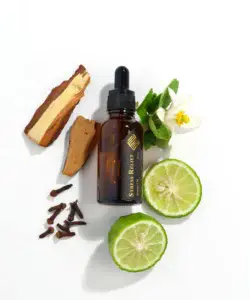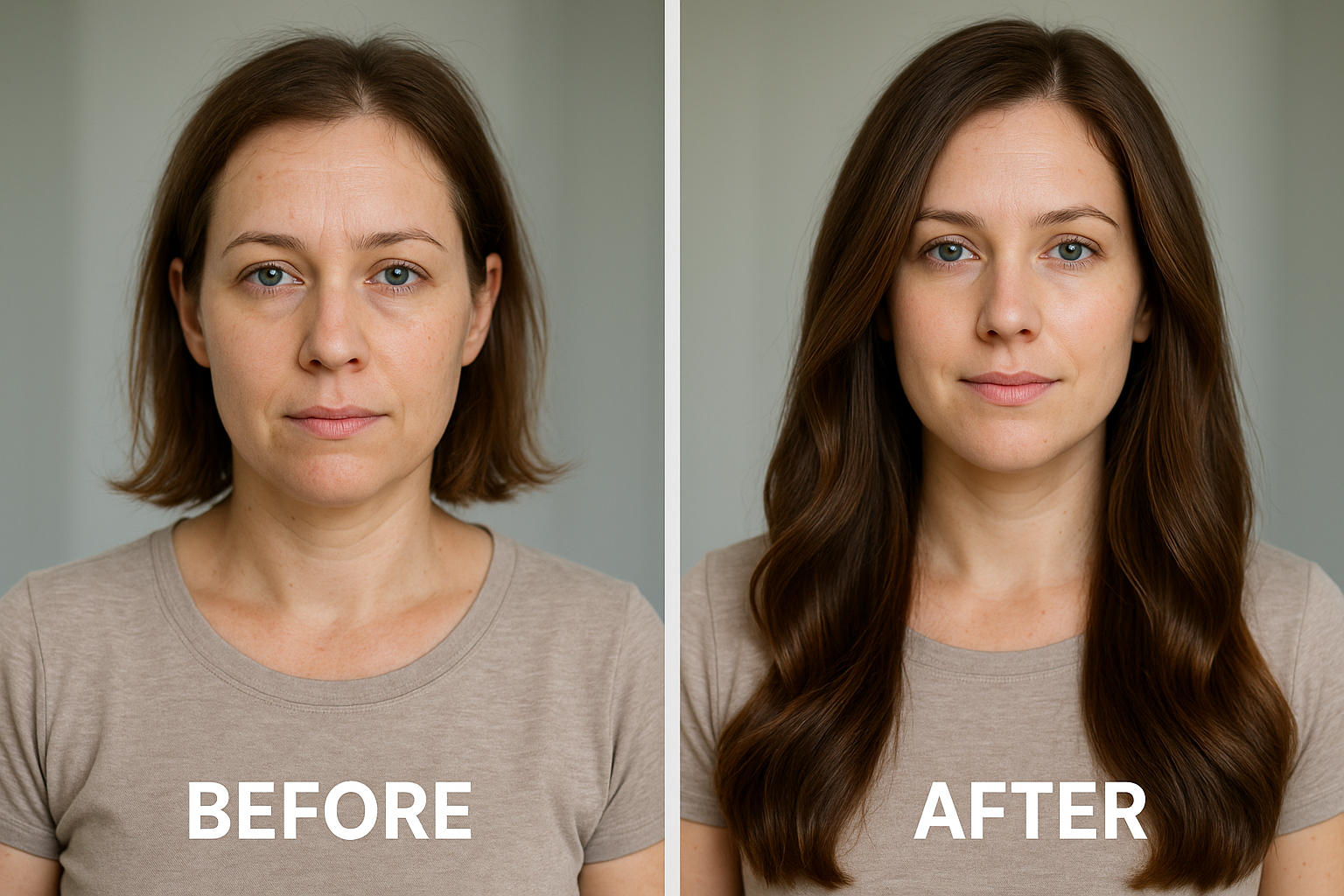Taking good care of your skin can make a difference, not just for your appearance but also for your overall health. Skin is more than a shield against the environment — it reflects what’s going on inside. That’s why embracing a natural skincare routine can be beneficial in achieving and maintaining a healthy glow.
Natural ingredients tend to work in harmony with your skin’s biology. They offer a purity that’s often absent in synthetic products, allowing your skin to breathe and rejuvenate without the extra baggage of harsh chemicals. Plus, these natural elements are often rich in antioxidants, vitamins, and minerals that can boost your skin’s health and appearance over time.
Consistency remains key in any skincare journey. Establishing a routine that includes gentle cleansing, moisturizing, and sun protection can form a solid foundation. When you incorporate natural ingredients into this routine, you can see incremental changes that reinforce your skin’s natural glow.
Overall, choosing natural components for your skincare regimen makes sense not only environmentally, but they can provide a more balanced approach to skin maintenance. Unlike commercial products that might promise immediate results but come with potential risks, natural ingredients offer a more authentic path to skincare that promotes holistic well-being.
Top 10 Natural Ingredients for Glowing Skin
Finding the right skincare can sometimes feel like navigating through a maze. Yet, turning to nature’s pantry often simplifies the choices. Here’s a look at ten natural ingredients hailed for enhancing skin health and glow.
1.Aloe Vera; is renowned for its soothing and hydrating qualities. This succulent’s gel can work wonders in calming inflammation and moisturizing the skin, making it an excellent daily ally.
2.Coconut Oil; stands out as a powerful moisturizer. Known for its deep hydration properties, it’s great for tackling dryness and protecting the skin’s natural barrier, especially useful in harsh climates.
3.Turmeric; M favorite, but you have to carefully select the right one. Turmeric, often celebrated for its vibrant yellow hue, delivers brightening effects on the skin. Rich in anti-inflammatory properties, it can also tackle acne scars and reduce redness.
4.Rosehip Oil ; Is cherished for its anti-aging potential. Packed with vitamins, it supports skin regeneration, helping to soften fine lines and enhance elasticity.
5.Honey; Is naturally draws moisture into the skin. Its antibacterial qualities make it a go-to for maintaining a clear complexion.
6.Green Tea; offers potent antioxidants that soothe and protect. Known for its calming effects, it can reduce redness and combat signs of aging.
7.Shea Butter; This thick and creamy, provides intensive moisture. It’s ideal for treating dry patches and improving skin smoothness.
8.Oatmeal; though humble, exfoliates gently while offering soothing relief to irritated skin, making it suitable for sensitive types.
9.Avocado; not just delicious, it is rich in healthy fats and vitamins. It nourishes and hydrates the skin, promoting a soft and supple texture.
10.Cucumber; is famed for its cooling properties and high water content. It’s terrific for refreshing tired skin and reducing puffiness, particularly around the eyes.
Integrating these natural powerhouses into your skincare routine can revitalize your skin, giving it that coveted glow. Whether you’re mixing these into homemade masks or opting for products containing them, choosing nature’s gifts can lead your skin to a healthy, radiant future.

The Most Important Ingredient {Detailed}
Aloe Vera: Nature’s Moisturizer
Aloe Vera, often dubbed a wonder plant, has more going for it than its looks. This succulent’s inner gel is packed with vitamins, enzymes, and amino acids that calm and hydrate the skin. It’s particularly beneficial in soothing sunburns or irritated areas, working almost like a natural replenishing serum.
Using Aloe Vera is refreshingly simple. You can break a leaf from an aloe plant and apply the gel directly to your skin. It’s that straightforward. Alternatively, opt for an aloe-based gel or moisturizer, ideally organic, ensuring you dodge unnecessary chemicals.
The hydration Aloe Vera provides is almost instant, leaving your skin feeling fresh and cool. It’s a great option for those hot summer days or when your skin needs a drink without feeling greasy.
Despite its many benefits, Aloe Vera can trigger allergic reactions in some, causing redness or irritation. A patch test can save you from unwanted surprises by checking how your skin reacts before full application.
As a natural moisturizer, Aloe Vera might not be the best choice for significantly dry skin types seeking intense moisture. It’s more about offering a light, soothing hydration rather than a deep, penetrating one.
Overall, Aloe Vera is a handy helper to keep in your skincare toolkit. Whether you’re dealing with redness or simply craving some gentle, non-greasy hydration, it’s a versatile staple that respects the skin’s natural balance.
Coconut Oil: The Ultimate Hydrator
Coconut Oil is like a tall drink of water for thirsty skin. It offers rich hydration, making it a staple for anyone battling dryness. Packed with fatty acids, this oil serves as a natural barrier, locking in moisture and providing a protective layer against environmental stressors.
Using Coconut Oil can be straightforward—just warm a small amount in your hands and massage it into the skin. For those with particularly dry patches or needing extra care, it functions perfectly as an overnight mask, allowing its nutrients to sink in deeply.
Its robustness in hydration is where Coconut Oil shines, delivering moisture that lasts. It’s especially beneficial during colder months when skin tends to dry out, offering relief akin to a cozy winter sweater.
While Coconut Oil boasts many pros, it isn’t a universal solution. Individuals with oily or acne-prone skin might find it a bit too rich, as it has a tendency to clog pores if not used carefully. Patch tests are a smart approach for those experimenting with it for the first time.
If you’re looking to incorporate Coconut Oil into your routine, consider keeping its use to areas needing intense hydration. It plays well as a post-shower moisturizer, helping to maintain the skin’s natural balance throughout the day.
When used thoughtfully, Coconut Oil can be a powerful ally in the quest for soft, supple skin, adding a touch of tropical indulgence to everyday skincare rituals.
Turmeric: The Ancient Glow Enhancer
Turmeric, a spice that’s a staple in kitchens around the world, also holds a cherished spot in skincare regimens. Known for its vibrant color and potent antioxidant properties, turmeric helps brighten the skin and even out the complexion.
Incorporating turmeric into your skincare routine can be as easy as whipping up a homemade face mask. Mixing turmeric with honey or yogurt creates a paste that can be applied for a nourishing treatment. The anti-inflammatory properties work wonders on acne-prone skin, reducing redness and calming flare-ups.
The skin-brightening effect of turmeric is especially appealing to those looking to boost their natural glow. Regular use can help fade scars and uneven pigmentation over time, leaving the skin looking fresh and luminous.
It’s important to handle turmeric with care since its bold hue can leave a temporary stain on the skin and fabric. A patch test is always a good move to ensure there’s no adverse reaction, especially for those with sensitive skin.
Even with its staining potential and strong color, turmeric remains a highly valued ingredient in natural skincare, blending ancient wisdom with modern-day beauty needs. It’s a star player for those aiming for a radiant, healthy complexion.

Pros and Cons of Each Ingredient
Getting acquainted with natural skincare means understanding both the perks and the challenges of each ingredient. Here’s a detailed look at what you can expect.
Aloe Vera is a skin-soothing wonder, offering hydration and relief from irritation. However, it can sometimes cause allergic reactions, so it’s a good idea to do a patch test first.
Coconut Oil delivers deep moisture, making it ideal for dry skin. On the downside, it can clog pores and is best avoided if your skin’s prone to breakouts.
Turmeric brightens and reduces inflammation, but it can unfortunately leave behind yellow stains on skin and clothes, so use it carefully.
Rosehip Oil offers anti-aging benefits and promotes regeneration. Yet, some folks with sensitive skin might find it a bit too rich, leading to breakouts.
Honey is great for locking in moisture and helping with acne, thanks to its antibacterial properties. It can be sticky and messy, which might not be practical for everyone.
Green Tea calms and protects with its antioxidants. Rarely, it can irritate particularly sensitive skin, so it’s wise to try it on a small area first.
Shea Butter intensely moisturizes, but its richness can be overwhelming for those with oily or acne-prone skin, potentially leading to blocked pores.
Oatmeal gently exfoliates and soothes, safe even for sensitive types, though some might find it doesn’t provide the deep clean they’re after.
Avocado hydrates and softens, but its richness means it could be too heavy, especially if your skin is oily.
Cucumber refreshes and reduces puffiness, a friend to tired and puffy eyes. That said, its lightness means it might not be enough for hydration-dependent skin types.
Balancing these pros and cons is key to tailoring a skincare routine that serves your skin’s needs. Experiment with care, and you’ll find the perfect natural partners to support your skin’s journey to natural radiance.
Conclusion: Crafting Your Natural Skin Care Routine
Building a skin care routine with natural ingredients doesn’t just enhance beauty; it embraces a more holistic approach to skin health. The journey to glowing skin is about understanding what works best for you, taking the time to experiment with different natural ingredients responsibly.
Integrating Aloe Vera for its calming hydration, Coconut Oil for deep moisturization, and Turmeric for its glow-enhancing properties can lay a solid foundation. These elements, when used judiciously, can help you build a routine that caters to your unique needs.
Start small, incorporating one ingredient at a time to understand your skin’s reaction. This approach helps in customizing a regimen that’s balanced and effective. Pair natural products with a healthy lifestyle, including a balanced diet and adequate hydration, to boost your skin’s health from the inside out.
Listening to your skin is key. Adapt your routine as your skin’s needs change with seasons or due to factors like stress and diet. Remaining flexible ensures that your skincare remains effective without overwhelming your skin with too many products at once.
Keeping skincare simple and natural aids in achieving long-term benefits. With patience and consistency, you’ll find the right mix of nature’s gifts that help maintain that coveted glow, showing that sometimes, less truly is more.










I’ve always been curious about how natural ingredients stack up against commercial skincare products, especially for men who often overlook skincare in their daily routines. I noticed ingredients like turmeric and aloe vera are mentioned; do these work equally well on male skin, which tends to be thicker and oilier? Also, how often should these be used to see real results? I’m especially intrigued by the idea of using oils like jojoba or argan, but I wonder if they might clog pores or cause breakouts in men with more active sebaceous glands. It’d be great to hear more about how application might differ between genders.
Your article on “Top 10 Natural Ingredients for Glowing Skin” is timely, informative, and well-suited for readers seeking a holistic approach to skincare. It effectively balances educational content with practical advice, offering both the benefits and potential drawbacks of each ingredient, which adds credibility and user-friendliness. The personal and accessible tone works well, though minor improvements in formatting, grammar consistency (e.g., punctuation in the list), and clarity (such as the turmeric section) would enhance readability. Including a brief introduction to the list, visuals, or a skin-type compatibility guide could further elevate the piece. Overall, it’s a strong, engaging article that thoughtfully promotes natural skincare while encouraging safe experimentation.
Keep up the good work!